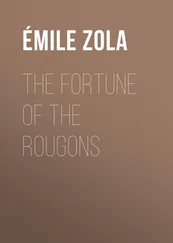Émile Zola - The Downfall
Здесь есть возможность читать онлайн «Émile Zola - The Downfall» — ознакомительный отрывок электронной книги совершенно бесплатно, а после прочтения отрывка купить полную версию. В некоторых случаях можно слушать аудио, скачать через торрент в формате fb2 и присутствует краткое содержание. Жанр: literature_19, foreign_antique, foreign_prose, на английском языке. Описание произведения, (предисловие) а так же отзывы посетителей доступны на портале библиотеки ЛибКат.
- Название:The Downfall
- Автор:
- Жанр:
- Год:неизвестен
- ISBN:нет данных
- Рейтинг книги:5 / 5. Голосов: 1
-
Избранное:Добавить в избранное
- Отзывы:
-
Ваша оценка:
- 100
- 1
- 2
- 3
- 4
- 5
The Downfall: краткое содержание, описание и аннотация
Предлагаем к чтению аннотацию, описание, краткое содержание или предисловие (зависит от того, что написал сам автор книги «The Downfall»). Если вы не нашли необходимую информацию о книге — напишите в комментариях, мы постараемся отыскать её.
The Downfall — читать онлайн ознакомительный отрывок
Ниже представлен текст книги, разбитый по страницам. Система сохранения места последней прочитанной страницы, позволяет с удобством читать онлайн бесплатно книгу «The Downfall», без необходимости каждый раз заново искать на чём Вы остановились. Поставьте закладку, и сможете в любой момент перейти на страницу, на которой закончили чтение.
Интервал:
Закладка:
“No, no; come to our house. I will tell you why – ” When they were in the shop and she had cautiously closed the door she continued: “You could not know, my dear boy, that the Emperor is at the Desvallieres. His officers took possession of the house in his name and the family are not any too well pleased with the great honor done them, I can tell you. To think that the poor old mother, a woman more than seventy, was compelled to give up her room and go up and occupy a servant’s bed in the garret! Look, there, on the place. All that you see there is the Emperor’s; those are his trunks, don’t you see!”
And then Maurice remembered; they were the imperial carriages and baggage-wagons, the entire magnificent train that he had seen at Rheims.
“Ah! my dear boy, if you could but have seen the stuff they took from them, the silver plate, and the bottles of wine, and the baskets of good things, and the beautiful linen, and everything! I can’t help wondering where they find room for such heaps of things, for the house is not a large one. Look, look! see what a fire they have lighted in the kitchen!”
He looked over at the small white, two-storied house that stood at the corner of the market-place and the Rue de Vouziers, a comfortable, unassuming house of bourgeois aspect; how well he remembered it, inside and out, with its central hall and four rooms on each floor; why, it was as if he had just left it! There were lights in the corner room on the first floor overlooking the square; the apothecary’s wife informed him that it was the bedroom of the Emperor. But the chief center of activity seemed, as she had said, to be the kitchen, the window of which opened on the Rue de Vouziers. In all their lives the good people of Chene had witnessed no such spectacle, and the street before the house was filled with a gaping crowd, constantly coming and going, who stared with all their eyes at the range on which was cooking the dinner of an Emperor. To obtain a breath of air the cooks had thrown open the window to its full extent. They were three in number, in jackets of resplendent whiteness, superintending the roasting of chickens impaled on a huge spit, stirring the gravies and sauces in copper vessels that shone like gold. And the oldest inhabitant, evoking in memory all the civic banquets that he had beheld at the Silver Lion, could truthfully declare that never at any one time had he seen so much wood burning and so much food cooking.
Combette, a bustling, wizened little man, came in from the street in a great state of excitement from all that he had seen and heard. His position as deputy-mayor gave him facilities for knowing what was going on. It was about half-past three o’clock when MacMahon had telegraphed Bazaine that the Crown Prince of Prussia was approaching Chalons, thus necessitating the withdrawal of the army to the places along the Belgian frontier, and further dispatches were also in preparation for the Minister of War, advising him of the projected movement and explaining the terrible dangers of their position. It was uncertain whether or not the dispatch for Bazaine would get through, for communication with Metz had seemed to be interrupted for the past few days, but the second dispatch was another and more serious matter; and lowering his voice almost to a whisper the apothecary repeated the words that he had heard uttered by an officer of rank: “If they get wind of this in Paris, our goose is cooked!” Everyone was aware of the unrelenting persistency with which the Empress and the Council of Ministers urged the advance of the army. Moreover, the confusion went on increasing from hour to hour, the most conflicting advices were continually coming in as to the whereabouts of the German forces. Could it be possible that the Crown Prince was at Chalons? What, then, were the troops that the 7th corps had encountered among the passes of the Argonne?
“They have no information at staff headquarters,” continued the little druggist, raising his arms above his head with a despairing gesture. “Ah, what a mess we are in! But all will be well if the army retreats to-morrow.” Then, dropping public for private matters, the kind-hearted man said: “Look here, my young friend, I am going to see what I can do for that foot of yours; then we’ll give you some dinner and put you to bed in my apprentice’s little room, who has cleared out.”
But Maurice was tormented by such an itching desire for further intelligence that he could neither eat nor sleep until he had carried into execution his original design of paying a visit to his old friend, Madame Desvallieres, over the way. He was surprised that he was not halted at the door, which, in the universal confusion, had been left wide open, without so much as a sentry to guard it. People were going out and coming in incessantly, military men and officers of the household, and the roar from the blazing kitchen seemed to rise and pervade the whole house. There was no light in the passage and on the staircase, however, and he had to grope his way up as best he might. On reaching the first floor he paused for a few seconds, his heart beating violently, before the door of the apartment that he knew contained the Emperor, but not a sound was to be heard in the room; the stillness that reigned there was as of death. Mounting the last flight he presented himself at the door of the servant’s room to which Madame Desvallieres had been consigned; the old lady was at first terrified at sight of him. When she recognized him presently she said:
“Ah, my poor child, what a sad meeting is this! I would cheerfully have surrendered my house to the Emperor, but the people he has about him have no sense of decency. They lay hands on everything, without so much as saying, ‘By your leave,’ and I am afraid they will burn the house down with their great fires! He, poor man, looks like a corpse, and such sadness in his face – ”
And when the young man took leave of her with a few murmured words of comfort she went with him to the door, and leaning over the banister: “Look!” she softly said, “you can see him from where you are. Ah! we are all undone. Adieu, my child!”
Maurice remained planted like a statue on one of the steps of the dark staircase. Craning his neck and directing his glance through the glazed fanlight over the door of the apartment, he beheld a sight that was never to fade from his memory.
In the bare and cheerless room, the conventional bourgeois “parlor,” was the Emperor, seated at a table on which his plate was laid, lighted at either end by wax candles in great silver candelabra. Silent in the background stood two aides-de-camp with folded arms. The wine in the glass was untasted, the bread untouched, a breast of chicken was cooling on the plate. The Emperor did not stir; he sat staring down at the cloth with those dim, lusterless, watery eyes that the young man remembered to have seen before at Rheims; but he appeared more weary than then, and when, evidently at the cost of a great effort, he had raised a couple of mouthfuls to his lips, he impatiently pushed the remainder of the food from him with his hand. That was his dinner. His pale face was blanched with an expression of suffering endured in silence.
As Maurice was passing the dining room on the floor beneath, the door was suddenly thrown open, and through the glow of candles and the steam of smoking joints he caught a glimpse of a table of equerries, chamberlains, and aides-de-camp, engaged in devouring the Emperor’s game and poultry and drinking his champagne, amid a great hubbub of conversation. Now that the marshal’s dispatch had been sent off, all these people were delighted to know that the retreat was assured. In a week they would be at Paris and could sleep between clean sheets.
Then, for the first time, Maurice suddenly became conscious of the terrible fatigue that was oppressing him like a physical burden; there was no longer room for doubt, the whole army was about to fall back, and the best thing for him to do was to get some sleep while waiting for the 7th corps to pass. He made his way back across the square to the house of his friend Combette, where, like one in a dream, he ate some dinner, after which he was mistily conscious of someone dressing his foot and then conducting him upstairs to a bedroom. And then all was blackness and utter annihilation; he slept a dreamless, unstirring sleep. But after an uncertain length of time – hours, days, centuries, he knew not – he gave a start and sat bolt upright in bed in the surrounding darkness. Where was he? What was that continuous rolling sound, like the rattling of thunder, that had aroused him from his slumber? His recollection suddenly returned to him; he ran to the window to see what was going on. In the obscurity of the street beneath, where the night was usually so peaceful, the artillery was passing, horses, men, and guns, in interminable array, with a roar and clatter that made the lifeless houses quake and tremble. The abrupt vision filled him with unreasoning alarm. What time might it be? The great bell in the Hotel de Ville struck four. He was endeavoring to allay his uneasiness by assuring himself that it was simply the initial movement in the retreat that had been ordered the day previous, when, raising his eyes, he beheld a sight that gave him fresh cause for inquietude: there was a light still in the corner window of the notary’s house opposite, and the shadow of the Emperor, drawn in dark profile on the curtain, appeared and disappeared at regularly spaced intervals.
Читать дальшеИнтервал:
Закладка:
Похожие книги на «The Downfall»
Представляем Вашему вниманию похожие книги на «The Downfall» списком для выбора. Мы отобрали схожую по названию и смыслу литературу в надежде предоставить читателям больше вариантов отыскать новые, интересные, ещё непрочитанные произведения.
Обсуждение, отзывы о книге «The Downfall» и просто собственные мнения читателей. Оставьте ваши комментарии, напишите, что Вы думаете о произведении, его смысле или главных героях. Укажите что конкретно понравилось, а что нет, и почему Вы так считаете.












